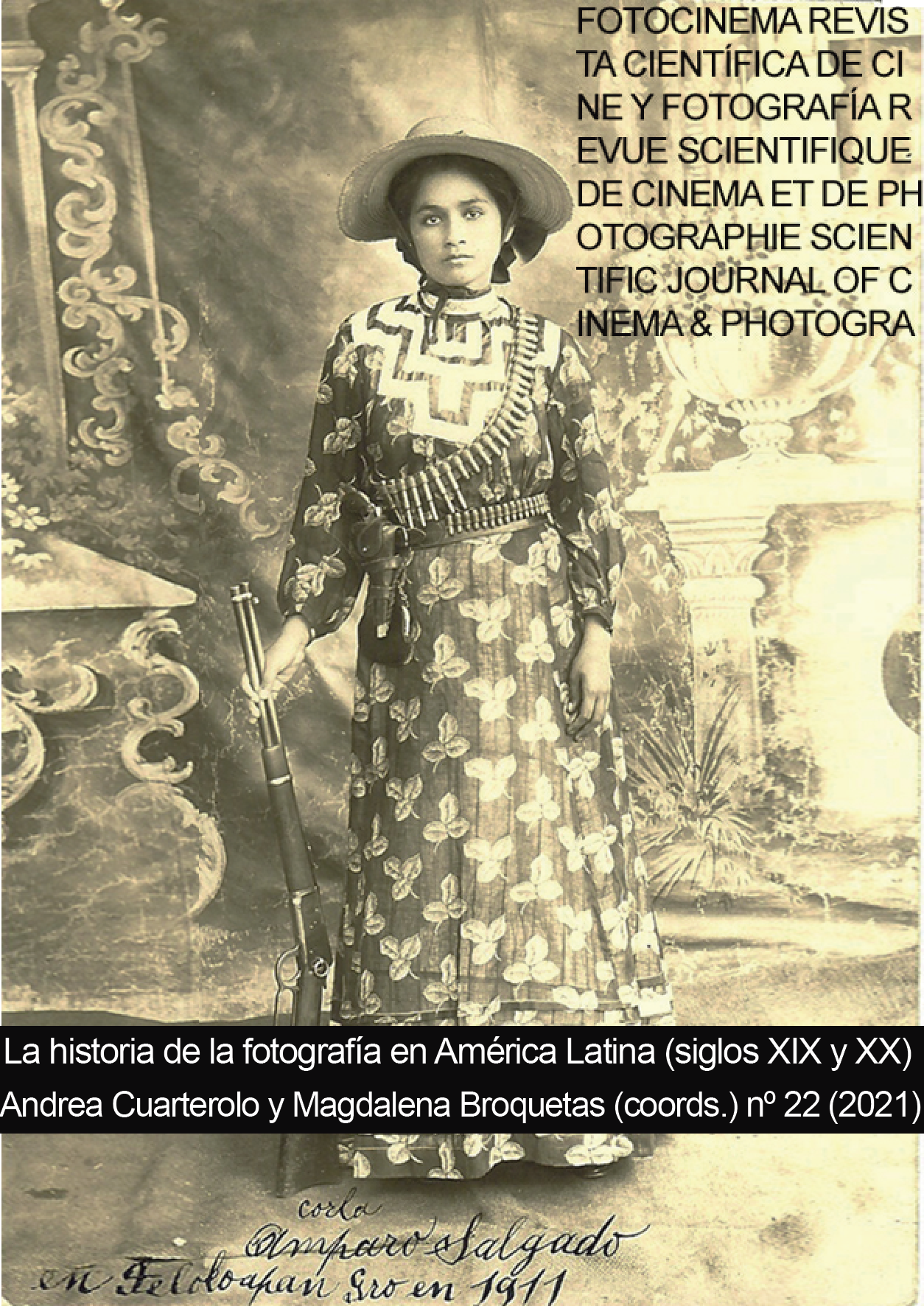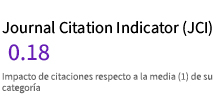The deadly bond. Mother-daughter relationships in Quién te cantará (Carlos Vermut, 2018)
DOI:
https://doi.org/10.24310/Fotocinema.2021.vi22.11736Keywords:
motherhood, horror cinema, melodrama, gender studies, Spanish cinemaAbstract
The relationship between mothers and daughters is a theme of growing interest in contemporary Spanish cinema. Despite the abundant corpus on the filmic representation of motherhood, this bond has hardly been specifically addressed. Focusing on gender studies and taking into account horror cinema and melodrama in the treatment of this topic, this article analyses the aesthetic and narrative conventions that have guided the representation of this maternal-filial bond in feature films produced in Spain in recent years. Taking Carlos Vermut's third film as the case of study, I conclude that though Quién te cantará (2018) maintains some of the traditional motifs that had shaped the negative representation of kinship between mothers and daughters, it also expands maternity archetypes. Portraying unorthodox models of motherhood, Quién te cantará is one of the few films that presents the conflict from the mother’s and daughter’s point of view simultaneously, questioning an idealized image of this bond.
Downloads
Metrics
Publication Facts
Reviewer profiles N/A
Author statements
Indexed in
-
—
- Academic society
- N/A
- Publisher
- Universidad de Málaga
References
Arnold, S. (2013). Maternal Horror Film. Melodrama and Motherhood. New York: Palgrave.
Auerbach, N. (1995). Our Vampires, Ourselves. Chicago: University of Chicago Press.
Bauche, N. (2018). Quién te cantará. Carlos Vermut. Como un animal. Positif, (693), 55.
Camí-Vela, M. (2005). Mujeres detrás de la cámara. Entrevistas con cineastas españolas 1990-2004. Madrid: Ocho y Medio.
Diestro-Dópido, M. (21 de octubre de 2018). Quién te cantará review: a pop star, transubstantiated. Sight and Sound. https://www.bfi.org.uk/news-opinion/sight-sound-magazine/reviews-recommendations/quien-te-cantara-carlos-vermut-dark-fairytale-amnesiac-pop-star [última consulta: 05/12/2020].
Doane, M. A. (1991). Femmes Fatales. London: Francis Group.
Doane, M. A. (1987). The Desire to Desire. The Woman’s Film of the 1940s. London: Macmillan Press.
Domínguez, C. (2006). Hola, ¿estás sola? de Iciar Bollain. Desechando la idea hegemónica de ‘maternidad’. En M. C. Ramblado Minero (Coord.), Construcciones culturales de la maternidad en España: la madre y la relación madre-hija en la literatura y el cine contemporáneos (pp. 79-90). Alicante: Universidad de Alicante.
Evans, P. W. (1999). Furtivos (Borau, 1975): My Mother, My Lover. En P. W. Evans (Ed.), Spanish Cinema. The Auteurist Tradition (pp. 115-127). Oxford: Oxford University Press.
Fisher, L. (1996). Cinematernity. Film. Motherhood. Genre. New Jersey: Princeton University Press.
Guzmán, E. (2015). Aurora de sangre. Vida y muerte de Hildegart. Madrid: Traficante de Sueños. Publicada originalmente en 1973.
Gómez, M. A. (2016). La madre muerta. El mito matricida en la literatura y el cine españoles. North Carolina: The University of North Carolina Press.
Herrero Vecino, C. (2006). De incertidumbres y genealogía: la representación de la maternidad en el cine español contemporáneo. En M. Cinta Ramblado Minero (Coord.), Construcciones culturales de la maternidad en España: la madre y la relación madre-hija en la literatura y el cine contemporáneos (pp. 105-124). Alicante: Universidad de Alicante.
Heffernan, V., Wilgus, G. (2018). Introduction: Imagining Motherhood in the Twenty-First Century—Images, Representations, Constructions, Women. A Cultural Review, 29 (1), 1-18, DOI: 10.1080/09574042.2018.1442603
Huyssen, A. (1981-1982). The Vamp and the Machine: Technology and Sexuality in Fritz Lang’s Metropolis. New German Critique, (24/25), 221-237.
Ituarte Pérez, L. (2010). El imaginario posmoderno de la feminidad en la filmografía de Juanma Bajo Ulloa y Julio Médem. Universidad del País Vasco-Euskal Herriko Unibertsitatea. Tesis doctoral.
Kaplan, E. A. (1992). Motherhood and Representation. The Mother in Popular Culture and Melodrama. London and New York: Routledge.
Keown, D. (1999). Feminism, Politics, and Psychosis in Fernán Gómez’s Mi hija Hildegart (1977). En P. W. Evans (Ed.), Spanish Cinema. The Auteurist Tradition (pp. 147-163). Oxford: Oxford University Press.
Kinder, M. (1987). Pleasure and the New Spanish Mentality. A Conversation With Pedro Almodóvar. Film Quaterly, 1 (41), 33-44.
Kovacsics, V. (2018). La otra cara. Quién te cantará, de Carlos Vermut. Caimán, (75), 65.
Martín-Marquez, S. (1999). Feminist Discourse and Spanish Cinema. New York, Oxford: Oxford University Press.
Martínez, B. (26 de setiembre de 2018). Entrevista a Carlos Vermut: “Me gusta el cine que nos conecta con la muerte, con el dolor”, El Periódico. https://www.elperiodico.com/es/ocio-y-cultura/20180926/entrevista-carlos-vermut-estreno-quien-te-cantara-san-sebastian-7056049 [última consulta: 17/06/2020].
McCormick, A. (2010). Supermothers on Film, or Maternal Melodrama in the Twentieth-first Century. En A. O’Reilly (Ed.), Twenty-First-Century Motherhood. Experience, Identity, Policy, Agency (pp. 140-157). New York: Columbia University Press.
Parra, J. (2020). La madre terrible en el cine de terror. Barcelona: Hermenaute.
Pelayo García, I. (2009). Imagen fílmica del lesbianismo a través de los personajes protagonistas en el cine español (tesis doctoral). Universidad Complutense de Madrid, Madrid. ISBN: 978-84-694-2459-9. Copia electrónica (2011) https://eprints.ucm.es/12289/1/T31312.pdf [última consulta: 05/12/2020].
Peleato, F. (2015). La isla mínima et La niña de fuego. Puzzles d’une Espagne en morceau. Positif, (653-654), 116-117.
Romney, J. (27 de septiembre de 2018). Quién te cantará. San Sebastian Reviews, Screen Daily. https://www.screendaily.com/reviews/quien-te-cantara-san-sebastian-review/5133030.article [última consulta: 05/12/2020].
Santaolalla, I. (2010). The Cinema of Iciar Bollain. Manchester: Manchester University Press.
Tenhaaf, R. (2020). Capitalist Magic and the Sacred Antidote in Carlos Vermut’s Magical Girl (2014). Bulletin of Hispanic Studies, 97 (6), 635-648.
Venet Gutiérrez, J. (2019). Las “Magical Girls” españolas. Intertextualidad nipona para dialogar sobre una España en crisis en Magical Girl (Carlos Vermut, 2014). En Vicente David Almazán Tomás y Elena Barlés Báguena (Coords.), Japón, España e Hispanoamérica: identidades y relaciones culturales (pp. 301-331). Zaragoza: Prensas de la Universidad de Zaragoza.
Vernon, K. M. (2002). Screening Room: Spanish Women Filmmakers View the Transition. En O. Ferrán, K. M. Glenn (Eds.), Women’s Narrative and Film in Twentieth Century Spain (pp. 95-113). New York: Routledge.
Yáñez, J. (2018). Carlos Vermut. El filme nace como una historia de fantasmas. Caimán, (74), 20-22.
Zas Marcos, M. (27 de octubre de 2018). No voy a decir si soy feminista o no porque hay muchos hombres que lo usan como coartada moral. El Diario.es. https://www.eldiario.es/cultura/cine/carlos-vermut-feminista-coartada-moral_128_2746460.html [última consulta: 05/12/2020].
Downloads
Published
How to Cite
Issue
Section
License
All contents published in Fotocinema Revista científica de cine y fotografía are protected under the Creative Commons Attribution-NonCommercial-ShareAlike 4.0 International (CC BY-NC-SA 4.0) license. All about this license is available in the following link: <http://creativecommons.org/licenses/by-nc-sa/4.0>
Users can copy, use, redistribute, share and exhibit publicly as long as:
- The original source and authorship of the material are cited (Journal, Publisher and URL of the work).
- It is not used for comercial purposes.
- The existence of the license and its especifications are mentioned.
There are two sets of authors’ rights: moral and property rights. Moral rights are perpetual prerogatives, unrenounceable, not-transferable, unalienable, imprescriptible and inembargable. According to authors’ rights legislation, Fotocinema. Revista científica de cine y fotografía recognizes and respects authors moral rights, as well as the ownership of property rights, which will be transferred to University of Malaga in open access. The property rights are referred to the benefits that are gained by the use or the dissemination of works. Fotocinema. Revista científica de cine y fotografía is published in an open access form and it is exclusively licenced by any means for doing or authorising distribution, dissemination, reproduction, , adaptation, translation or arrangement of works.
Authors are responsable for obtaining the necessary permission to use copyrighted images.














13.png)



